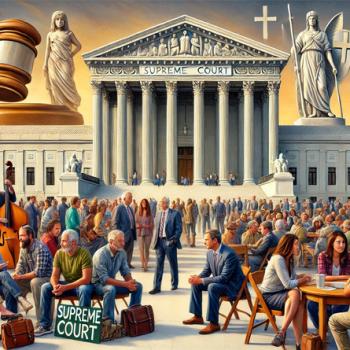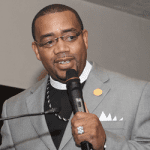I wasn’t always a religious liberal/progressive. I grew up in a conservative Southern Baptist home, was born again when I was 9 during a city-wide revival, and felt the call to ministry when I was 14. I longed for a deepening and consistent relationship with God, but I couldn’t maintain the euphoria of religious ecstacy which I experienced at youth camps, retreats, choir tours, and mission trips. So I decided I needed to read and study more, seeking the depth of understanding which would last beyond an emotional roller-coaster spirituality.
I would learn about the second coming of Christ from Hal Lindsey and Tim LaHay (decades before the Left Behind series). I would learn about defending the faith from Josh McDowell’s Evidence That Demands a Verdict. But I was blown away by the philosophical and cultural analysis of Francis Schaeffer in The God Who Is There, Escape from Reason, He Is There and He Is Not Silent, and How Should we Then Live? The Rise and Decline of Western Thought and Culture. I wanted to be just like Francis Schaeffer and help our culture recover the absolute truth of Christianity which had been lost in cultural relativism and nihilism.
I went to a small church related university to become equipped in the faith so that (in my mind) I could carry on the work of Schaeffer. Instead, horror of horrors, I was educated rather than indoctrinated. I was taught to think and ask questions. And by following Paul’s admonition to “test everything; hold fast to what is good” (1 Thess. 5:21), my spiritual pilgrimage has taken me to a place where I find myself in the camp of the liberals and progressives (and perhaps the emergent church).
If my 17-year-old self were to meet me today, I’m not sure he would like what he sees. He’d probably think I’ve abandoned the faith (if I ever had faith), that I’ve rejected the authority of scripture, and that I’ve substituted human reason in place of accepting the revelation. If I could talk to my 17-year-old self, I would say that I still believe that God is at work in my life, but maybe not in the same way that a 17-year-old understands. I would tell him that I still experience the authority of scripture, but I don’t find that authority in the words of scripture, but in the Event to whom scripture testifies. And I would say that I have not substituted human reason for revelation, but realize that I can only understand the revelation in human, fallible, finite ways, and that it is a mistake to think that anyone’s theology is every entirely adequate to express the revelation of the Infinite.
But above all, I would tell my gnostic-leaning 17-year-old self, it’s more important to be a true follower of Christ and actually act in Christlike ways than it is to have what you think is the correct theology. Ideas matter, but real, living human beings matter more. Don’t forget Paul’s words in 1 Cor. 13:1-3:
If I speak in the tongues of mortals and angels, but do not have love, I am a noisy gong or a clanging cymbal. And if I have prophetic powers, and understand all mysteries and all knowledge, and if I have all faith, so as to remove mountains, but do not have love, I am nothing. If I hand over my body so that I may boast, but do not have love I gain nothing.















